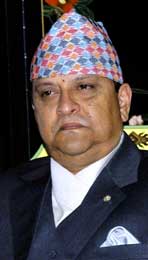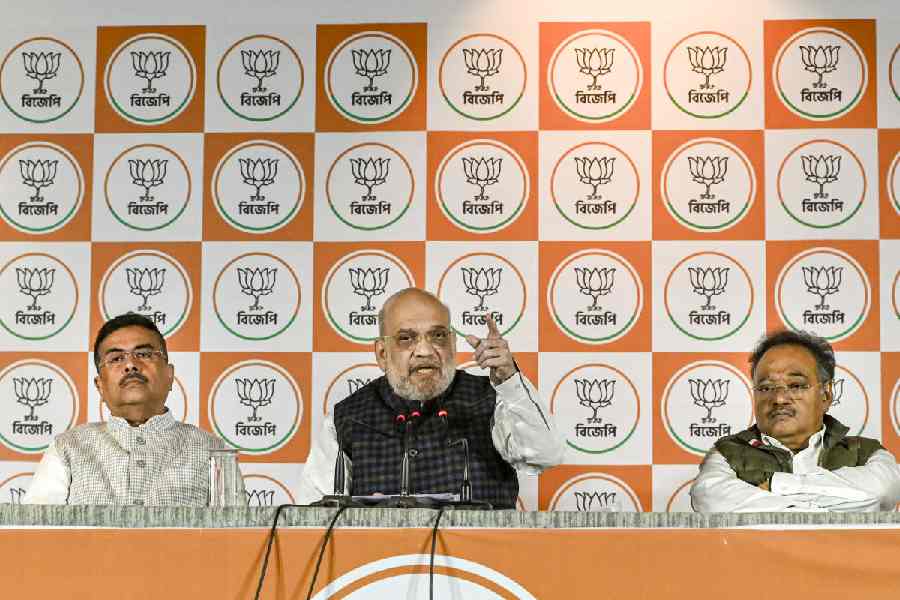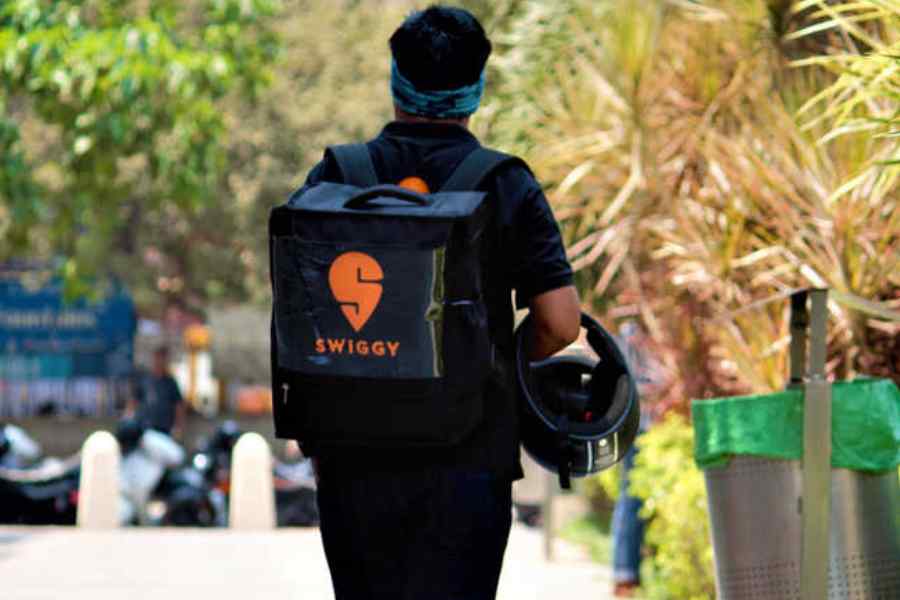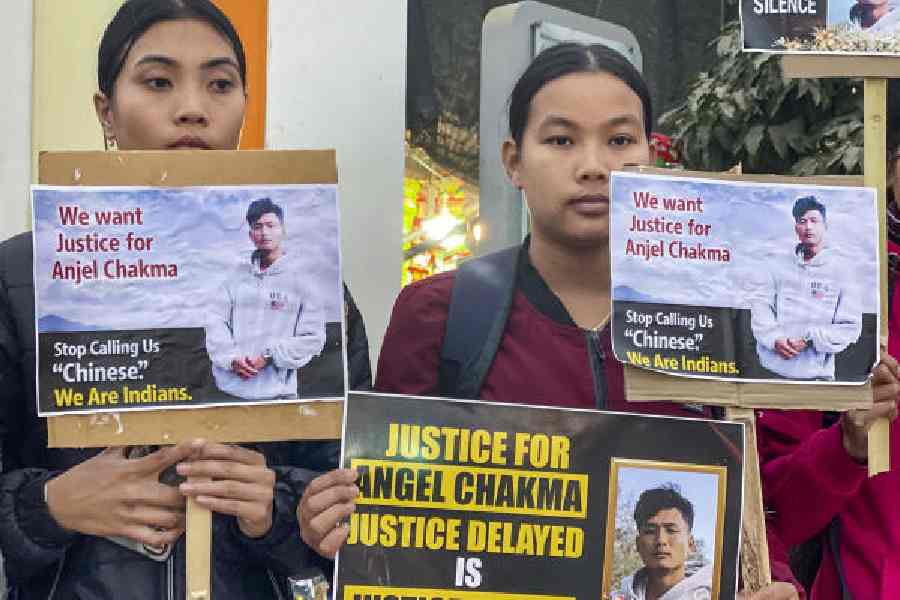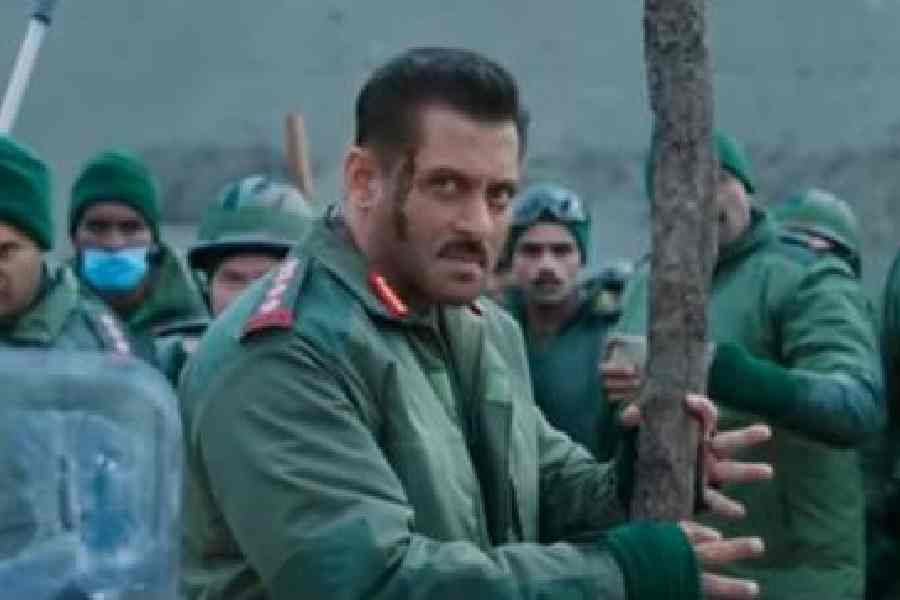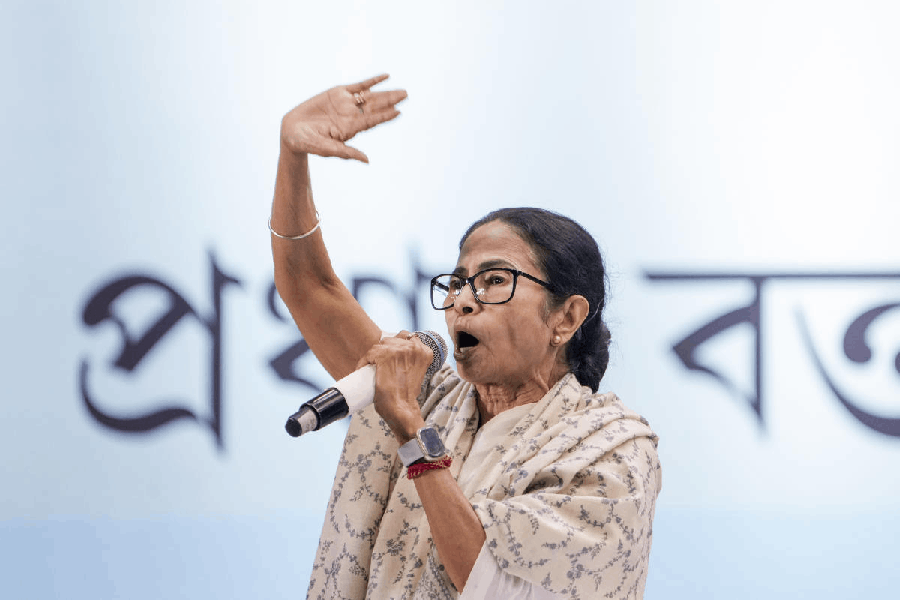|
|
| Adding to the mixture |
I went to Bangalore for the first time last month, around the new year. On the flight, a newspaper headline announced that the city was now about to be renamed, or, rather, it was to revert to its ?traditional? name Bengaluru. Reaching Bangalore (or, ?B?lore? to any sensible person using a keyboard of any sort) I met up with two old school friends ? neither of them enemies of tradition per se ? and we kept bursting into laughter at the new name being proposed.
Something about the name brought out the schoolboy in all three of us and the holiday was rife with jokes. Was the name-change proposed by a local Bong? If not, why on earth would IT-rich, culturally proud, ?Digas want ?Bengal? included in the name of their capital city? The second half, ?luru?, with a couple of letters added or changed, led to all sorts of dormitory-humour, wisecracks unreproducable in a family newspaper such as this, except it suffices to say that the tweaked ?luru? could play one way in the Hindi we all spoke, and another in the Bangla with which we were all familiar.
On the flight back, a slightly more serious vein of thought asserted itself. I remember clearly how angry I became when Bombay was officially renamed Mumbai a decade ago, and again, when the same thing happened soon after to Madras and then, finally, to Calcutta. Usually this anger remains contained to a note I add when writing for newspapers and magazines unfamiliar with my preferences, a note which requests everyone to kindly leave alone the city names I use, such as Calcutta, Bombay or Madras. But now, with the imminent adding of Bangalore to this list, the whole issue rekindles itself for me and it?s about far more than just names.
The first fact, one that barely bears repetition, is that Calcutta and Bombay, at least, were colonial cities birthed and brought up by the East India Company and the British raj. Without going into the well-documented crime that was Empire, we must not forget that both these cities were, from pretty early on, cosmopolitan; the initial populations may have been local, but by the mid-19th century, Bombay belonged as much to Gujaratis and Parsis as it did to the Marathas and the local coastal communities, and Calcutta belonged as much to bhaiyas from Bihar and UP, and to the Marwaris as it did to Bengalis. The long cusp of the 19th and 20th centuries saw the entry of many, many more communities into both these megalopolii, and it is these succeeding waves of immigration that made each city into what it is today.
Imagine a Bombay that consisted only of Marathis, or a Calcutta without its massive working class from the Gangetic basin, without Sikh taxi drivers, without a Chinatown, without a Badabazar teeming with Marwaris, Sindhis, Gujaratis and Punjabis, or a Park Street and Free School Street without Anglo-Indians, Armenians and Jews. Imagine, also, a Calcutta without Europeans, not all of whom were Running Dogs of the Raj. Imagine a raag consisting of only one note or a daal only spiced with salt. That raag would not be a raag, that daal would not be a daal, and that Calcutta would not be the city we know.
Now, nobody, save the Marathi-speakers and Gujaratis called Bombay ?Mumbai?, and nobody except Bengalis, Oriyas and Assamese called Calcutta ?Kolkata?. Bombay/Mumbai/ Bambai (the latter with the short ?a? sound) and Calcutta/Kolikata/Kolkata/Kalkatta (ditto, short ?a?s), (or, my favourite, Kalkatwa, as in ?Ei babua, ii t^o puraa Kalkatwa jaanbey kari!?), were made into what they are by people for whom they were all these names. No one, no Shiv Sena in Bombay or CPM in Calcutta, had a right, therefore, to wipe out this nomenclatural history and reality by privileging the local name used by the ethnic majority in the city.
The usual return of serve to this argument goes thus: the renaming of India?s cities is part and parcel of the larger project of wiping out our colonial hangover and re-asserting our national and regional cultural identities; just as we do not need roads and squares named after British officials we do not need our cities forever lumbered with their raj monnikers, (many of them deriving from the goras? inability to pronounce simple Indian names such as Vadodara and Thiruvananthapuram).
There is one big problem with this. While I am all for changing ?Road?, ?Street? and ?Avenue? to Sarani, Marg and Vithi, happy with the exchange of Lansdowne for Sarat Bose and chortlingly happy with the kicking out of Harrington in favour of Ho Chi Minh and the cancelling of Camac to install Shakespeare, (or even ?Sex Pyaar? as one signboard notably proclaimed), to my mind the same principle does not apply to city names.
This is because, a city, like a country, is a much larger, a much more complex construct than a lane or a plaza. There is a reason why most people reading this column probably did not pause to think twice about my use of ?India? and ?Indian? in the previous paragraph but one: ?India?, much more than ?Hindustan?, ?Bharat?, or ?Bharatam?, is the name that is now truly representative of the country we live in; it is the one agreed name that diverse people from all over the country use regularly and without quarrel, and, since the spread of cricket and television, it is a name that is now freely used across city, small town and even village; also, not unimportantly, now that we see ourselves as deeply connected to the world, it is the name by which the international community knows us and recognizes us.
Similarly, what a ?Calcutta? or a ?Bombay? signifies is a typically subtle Indian way of eating your cake and having it too. What the old names say, which Mumbai and Kolkata don?t, is: ?yes, we come from a colonial history, but also, yes, we have overcome that colonial past and are confident enough to keep whatever is useful from that past, whether it be the English language, our railway network, or, indeed, the names of two of our most famous cities. Just as the name India provides a nomenclatural umbrella to awesome diversity, so do the names of these urban leviathans provide each a name-shelter under which all who have contributed to that living city can live and continue to work.?
I also have another argument, one that many may see as converse to the one laid out above, and perhaps perverse to the point of encouraging a kind of verbal chauvinism. Basically, I come out in hives every time I hear an Aussie or English cricket commentator mangle the names ?Mumbai? and ?Kolkata?. (?That?s a graayt inniings! That?s the 35th test hundrid for the boy from Moomboy! Onbelievable, moyte!?), (`That cuvver drive tells you why I call `im the Prince, the Prince oof Kulcattar!?) As a Cal-raised Gujarati, when my parents and I travelled west we took the Bombay Mail via Nagpur to?Mumbai. As a student abroad, feeling homesick while talking to a home-based friend on an international call, I would say ?Guru, Kolkata?r shei bhaab-ta bhishon miss korchhi!? Whether they were named in Gujarati ? ?Kalkatta aney Mumbai? ? or spoken of in Bangla ? ?Kolkata aar Bombei? ? these names were my names for cities that were in typical, personal and secret ways mine alone, and these cities answered me when I took their names, like a person answers to an intimate nickname only when addressed by those family members licensed to use it. No governmental clown had any business releasing these private names into the bland, pronunciational mash-making machine of world-speech.
In short, no matter which argument gets it for me, I want my Kolkata and my Mumbai back. Which means my Calcutta and my Bombay also have to be returned to me. It may be too late, and I may resemble no one more than a Don Quixote on a recalcitrant buffalo, but it?s not too late for U.R. Ananthamurthy, the well-known Kannadiga writer and intellectual who apparently suggested the name-change for Bangalore. ?U.R. saar, please think saar!?, I say to him, ?Please think before you lose both your Bengaluru and your Bangalore!?

